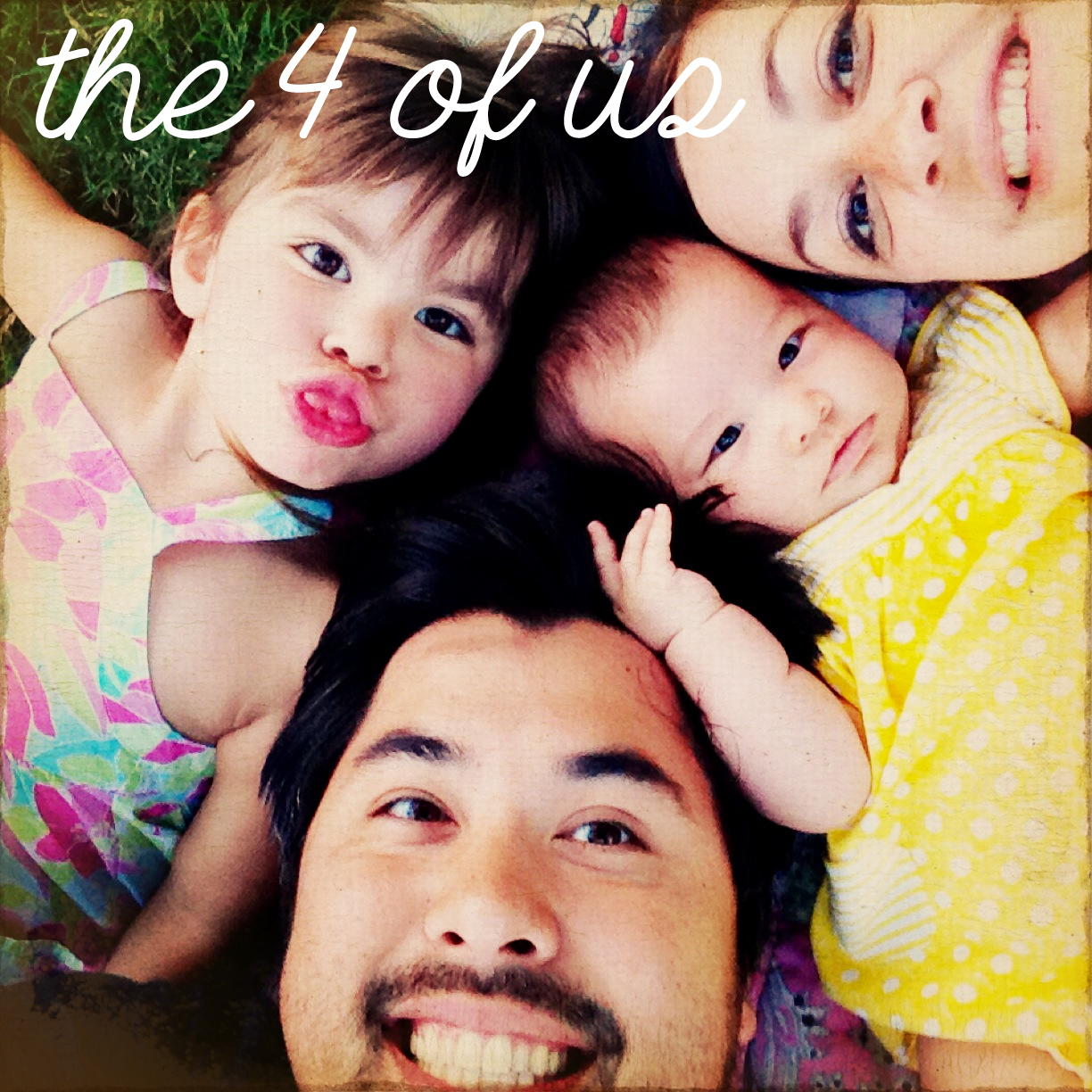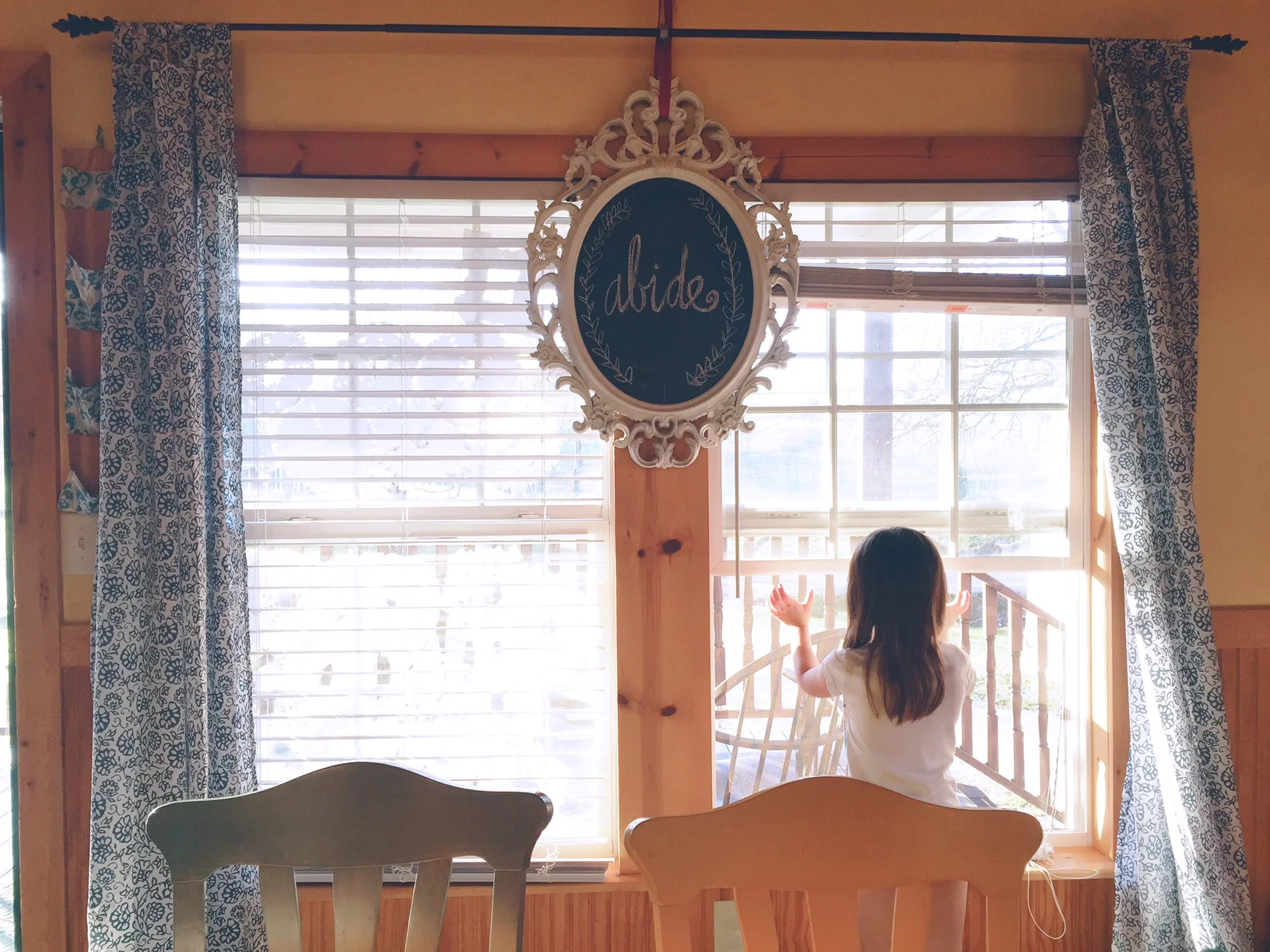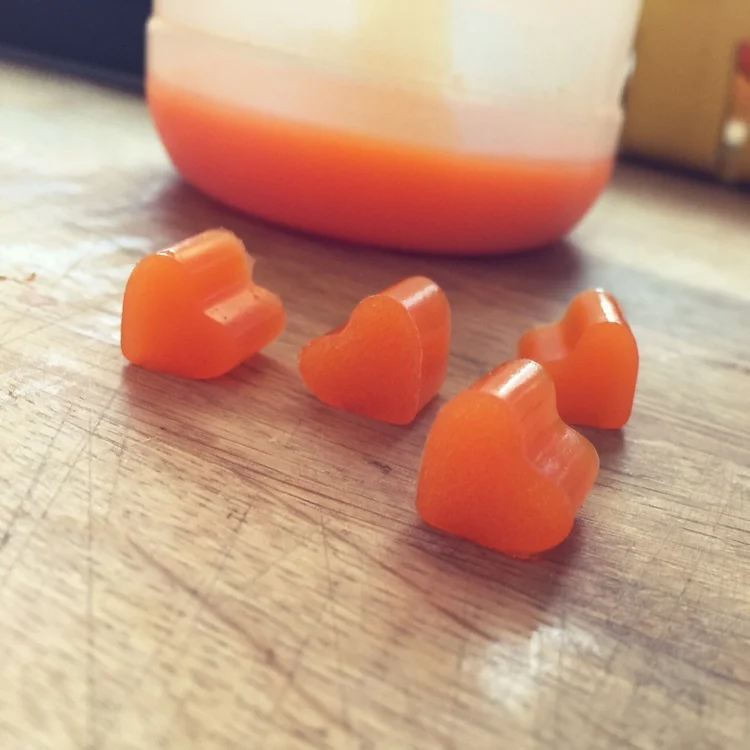How I prepared for a homebirth VBAC.
/It's been 7 months since Norah Jewell entered our lives. Was it really just 7 months ago that I didn't yet know her peaceful personality and pillowy cheeks or the way her dark, wavy hair makes a swirl at the crown of her head? Funny how it seems like pregnancy will never end, and then you move on so quickly to the next stage: raising your new, precious little person.
The birth of my first daughter, Luci Isabelle, didn't exactly go as planned. After spending my entire first pregnancy preparing for a natural birth at a birth center, I ended up with a c-section after 36 hours of labor and never progressing past 5cm. Throughout that experience, I learned a lot about fear and pain and surrender and know that in the end, it was all for a reason and she entered the world the way she was supposed to.
But I still had this innate desire to birth a baby naturally. So when I became pregnant again, I knew I wanted to try for a VBAC (vaginal birth after c-section).
From what I understand, VBACs were more popular before c-sections became so common here in the U.S. (30% of births nowadays!), and then as our c-section rate grew, it was generally understood that once you had a c-section, you always had to have one. VBACs have had a resurgence in recent years as women have become more educated and are fighting for the births they desire. VBACs have an overall success rate of 74%, which is pretty amazing. The more research I did, I saw that I didn't have any of the high risk factors and was a great candidate for a VBAC. {This site has a lot of great stats and info on VBACs.}
I also had an awesome midwife on my side - Kathleen Mayorga of Bella Births - who is a nurse practitioner with plenty of hospital experience and great track record of successful VBACs. Kathleen is also the midwife who was with me during most of my labor with Luci Belle. She fought alongside me for a natural birth but is the one who decided we finally needed to go to the hospital. I completely trusted her expertise, especially since she'd been with me the first time and knew what had gone wrong. She completely believed I could do a VBAC this time.
At first, I was pretty firm on wanting to do my VBAC at Kathleen's birth center. Then after watching the documentary "More Business of Being Born" I decided that not just VBAC, but homebirth, was undoubtedly the best plan for me. Kathleen said, "I've never done a VBAC at home that wasn't successful," and after seeing the documentary I understood why. Your home is where you feel most comfortable. If you're low-risk and have a highly experienced birth team and feel comfortable with it, you have an extremely good chance of having a successful VBAC at home. We live 3 minutes from the nearest hospital. Especially with none of the high risk factors, I figured I had the greatest chance for a VBAC in my own, peaceful, familiar environment with a great birth team, where I'd be free to roam around and labor however I was most effective. Kathleen said I had about a 70-80% chance of being able to have a successful VBAC. A lot of it depended on my own mental and emotional state. Was I all-in? Was I willing to do everything she told me to prepare my body for this? Did I really believe I had the ability to birth my baby naturally?
In my heart, the answer to all of these questions was a resounding yes. I wanted so badly for my body to do what it was created to do. I knew there was nothing wrong with my uterus. It was my misaligned pelvis and the position of my first daughter (Occiput Posterior) that prevented her from descending into the birth canal enough to make me dilate fully. As the world-renowned midwife Ina May Gaskin says, "Your body is not a lemon." This sounds strange, but I wanted it all. I wanted to feel everything. I wanted to sense what it was like to push my baby out. I just had this deep feeling that I could do this, that I could have this amazing experience of being full engaged with my baby coming into the world.
In the end, the sweet, wonderful victorious thing is that I was able to have a successful homebirth VBAC with Norah! Besides a lot of centering, surrendering prayer to the Lord, I don't think there was any one thing that made it happen successfully, but a lot of things that all worked together.
Before I go any further, I just want to make it clear that I know a VBAC isn't the best option for everyone. I also have several friends who attempted VBACs and ended up with repeat c-sections. I know that could have been me as well. I'm not assuming that these tips will work for everyone, but I wanted to share what I feel gave me my best chance at having a successful VBAC.
So in hopes of helping others in my same position, here are all the things I did to prepare for my homebirth VBAC. Even if you're choosing a hospital or birth center VBAC, I hope you'll find something here that's helpful.
Prayer
This was most important to me, because I had to surrender my dreams and wishes to the Lord. He knit Norah together in my womb and was there every minute with me through this pregnancy, from the hours I spent sick on the bathroom floor, to washing and folding her clothes, to seeing her twisting and turning on the ultrasound screen. But I'm not sure if it mattered to God how she would come into the world. Was it His will one way or another - c-section or natural birth? I don't know, but the Bible tells us to approach Him with confidence and persistence and faith, so that's what I did. I asked Him for this gift - for my body to do what He had created it to do. I had peace that I had given Him my heart's desire, and from there, whatever happened would be okay.
Chiropractic care
One of the biggest mistakes I made when pregnant with Luci Belle was not getting chiropractic adjustments, and I ended up with a misaligned pelvis that wouldn't allow my baby to descend and the inevitable c-section. I wasn't going to make that mistake again. After Luci Belle's birth, we developed an incredible relationship with the folks at Café of Life Chiropractic, and doctors Autumn and Tom Gore have adjusted our entire family since. They are like family to us. Their office is a safe haven, a nucleus of peace and community. So getting adjusted from the beginning of my pregnancy was an absolute must. I said so many times, "I don't know how I got through my first pregnancy without chiropractic care. What was I thinking?" After getting adjusted each time, I just felt so much better. I could tell that my pelvis was open and aligned. I could feel life coursing through me from my head to my toes. And when I had the aches and pains of my bones and ligaments stretching to accommodate this baby, they were immediately relieved after getting adjusted. I highly recommend chiropractic to all pregnant women. Make sure you choose one who is well-versed in dealing with pregnancy and children.
Hypnobabies
During my first pregnancy I was kinda skeptical of the whole Hypnobabies thing, but then I had several friends who used the audio tracks successfully and had very peaceful births. I found out they had a CD specifically for VBACs which I purchased and listened to every night as I fell asleep. I only remember one time that I was still awake at the end of the CD, but apparently, your subconscious is still soaking in the affirmations even if you're asleep. One phrase on the CD stuck out to me more than all the others, "This is my healing birth." Weeks before the birth, I wrote this phrase on the mirror in my bedroom with dry erase marker. As you'll see later in my birth story, this phrase ended up being very meaningful to me.
Being more active
Huge pregnant belly. Very energetic 3-year-old. 'Nuff said.
Better posture
Last time, I was still working from home 8+ hours a day. I sat at my desk every day, all day. I've since read that sitting too much and bad posture in pregnancy can lead to your baby being in an unfavorable position. This time, I wasn't sitting all day; I was movin' (see previous). Also, Norah was positioned correctly and able to descend straight into my pelvis.
Agreeing to not be induced
The highest risk for uterine rupture in VBACs is among women who were induced into labor because it stresses the uterus. Having felt the effects of that horrific beast, Pitocin, the first time, I in no way, shape, or form wanted to be given anything synthetic to induce my labor. Thankfully, my midwife was just as passionate about helping my labor start naturally or at least with gentle natural methods.
Essential oils
I've mentioned how much I love my doTerra essential oils and have been building an arsenal of them. Then, my dear friend Bre who runs the website Nourishing the Home gave me a wonderful baby shower gift - a labor and birth kit filled with an array of doTerra oils along with scripture cards and bullet points of how to use them. My favorite oil pre-labor was Clary Sage - at 38 weeks, I started diffusing Clary Sage on my nightstand before bed, and not only was it super calming, but it also made me have some Braxton-Hicks contractions which were good practice for my uterus.
Supplements
I was faithful in taking a good prenatal vitamin, Vitamin C (which my midwife said would help me build a good strong bag of waters), and Carlson's Vitamin D-3 drops throughout my pregnancy, and then in the last several weeks, I took Red Raspberry Leaf in capsules (because no one can drink that much tea) and Evening Primrose Oil. I took as much EPO as possible to prepare my uterus - by mouth as well as internally (email me if you want to know details on that - ha.)
Birthing without fear, speaking positively, & understanding the facts
It was essential for me to try erase the fears of my last experience...that because of last time, my body couldn't do it this time, or that I'd be one of the 1% who had something terrible happen. I tend towards being fearful in general, so this had to be addressed. Doing my own research really helped to assuage a lot of these fears. When you're considering a VBAC, the words "uterine rupture" are always at the forefront, either said to scare you, or said to yourself to convince yourself not to do it. Yes, uterine ruptures can happen but from all of my research, I found that the rate was only 1%, and I actually had a greater risk of something going wrong during a repeated c-section (which some people forget is major surgery!) than I did with a VBAC. I also kept telling myself "I am staying out of the hospital this time." In the back of my mind, of course I knew I would go if I had to, in the event of an actual emergency. But building up confidence that I was going to be able to do this outside of the hospital this time was important for me.
~ ~ ~
So there you have it! I truly hope this helps someone have the VBAC they desire. The story of Norah's beautiful healing birth is coming soon...stay tuned.




























